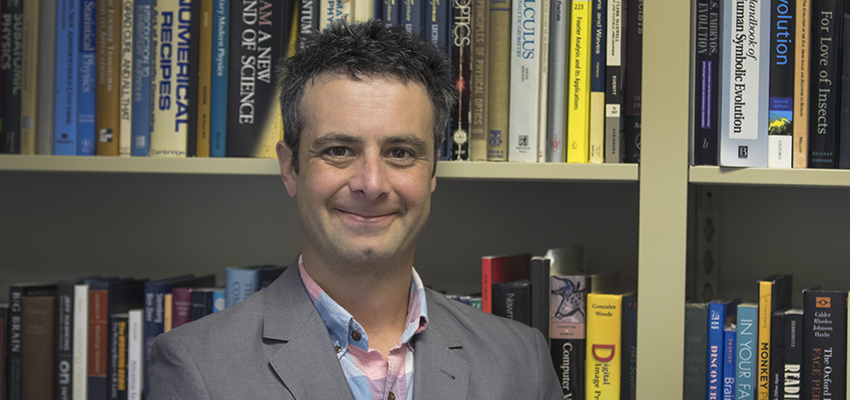
HWS News
23 June 2017 • Faculty • Research Graham and Pugach '15 Publish Study on Aesthetic Preferences
In a cross-sectional study appearing in a special issue of the journal Frontiers in Human Neuroscience, Assistant Professor of Psychology Daniel Graham, Cameron Pugach '15 and their colleague Helmut Leder of the University of Vienna in Austria explore the stability of aesthetic preferences.
The article "How Stable Are Human Aesthetic Preferences Across the Lifespan?" shows that human taste is rather unstable at all stages of life: aesthetic preferences are quite unstable in early childhood; become increasingly stable in young adulthood; and then gradually become less stable in later adulthood, the authors write. "As such, our results refute the popular impression that young adults are fickle while children and older adults are set in their ways."
The results of the study support the idea that human aesthetic preferences are rooted in cognitive control, or the ability to adapt cognition to current situations. "In other words," Graham notes, "rather than possessing preferences that shape behavior, our behavior may instead shape our preferences."
William Smith graduates Emma Daley '12 and Amy Gallop '13 helped Graham collect data during summer research and a subsequent independent study with Graham, Pugach analyzed that data. This work became a conference presentation delivered to the International Association for Empirical Aesthetics Biennial Congress in 2014.
"Following the conference, we expanded this work to stretch across the lifespan, so Cameron tested adolescents, undergraduates and non-elderly adults using the same procedure," says Graham. "We then combined these data with previously collected data from healthy elderly people. Over the past year or so, Cameron and I have worked together to write the final paper while he pursues his graduate studies. I have been extremely impressed with the thoroughness and thoughtfulness of Cameron's work on this project while he also carries out work for his master's degree, and applies to Ph.D. programs. It has been rewarding for me to see him grow and mature as a scientist."
Citing the influence of Graham, as well as HWS and the outstanding faculty as a whole, Pugach notes that it's really wonderful to see a number of years of hard work culminate into this paper.
Pugach, who majored in psychology, recently earned his master's in forensic psychology at John Jay College of College of Criminal Justice, where he was a Presidential Scholar. He plans to pursue a Ph.D. in clinical psychology.
A member of the HWS faculty since 2012, Graham earned his B.A. in physics from Middlebury College and his M.S. in physics and Ph.D. in psychology from Cornell University. He recently offered a talk at the Fitchburg Art Museum (FAM) in Massachusetts, presenting his research about the ways the human visual system processes artistic images.
